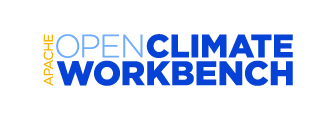
Apache Open Climate Workbench
Apache Open Climate Workbench is an effort to develop software that performs climate model evaluation using model outputs from a variety of different sources (the Earth System Grid Federation, the Coordinated Regional Downscaling Experiment, the U.S. National Climate Assessment and the North American Regional Climate Change Assessment Program) and temporal/spatial scales with remote sensing data from NASA, NOAA and other agencies. The toolkit includes capabilities for rebinning, metrics computation and visualization.
Apache OCW 0.5 Released
January 14, 2015
The Apache Open Climate Workbench team is pleased to announce the 0.5 release! This is our last point-oh release before we progress to 1.0 addressing over 40 issues, bugs, and improvements. The latest release can be downloaded (as .tgz and/or .zip) from our downloads page
Check out the release notes as well for a full breakdown of all of the features and improvements bundled into this release.
Apache OCW at 2014 AGU Fall Meeting
December 15, 2014
What a way to top off a year other than being represented at one of the premier international science conferences! During the month of December in 2014 OCW was represented by a number of individuals at the American Geophysical Union's Annual Fall Meeting at the bustling Mosconi Centre in beautiful San Francisco. With nearly 24,000 attendees, the AGU Fall Meeting is the largest Earth and space science meeting in the world.
OCW featured presentations included:
- Apache Open Climate Workbench: Building Open Source Climate Science Tools and Community at the Apache Software Foundation, and
- Enabling Automated Graph-based Search for the Identification and Characterization of Mesoscale Convective Complexes in Satellite Datasets through integration with the Apache Open Climate Workbench
We look forward to future direct engagements with the scientific community at large, especially at AGU 2015!
Apache Open Climate Workbench 0.4 Released
September 16, 2014
The Apache Open Climate Workbench team is pleased to announce the 0.4 release! This is a huge release for OCW with over 170 issues, bugs, and improvements included and represents almost a year of development effort from the team. The latest release can be downloaded (as .tgz and/or .zip) from our downloads page
Check out the release notes as well for a full breakdown of all of the features and improvements bundled into this release.
Open Climate Workbench @ 3rd Lund Regional-Scale Climate Modeling Workshop, Lund, Sweden
June 18, 2014
Memebers of the OCW community (Paul Ramirez, Kyo Lee, and Paul Loikith) led a half-day RCMES/OCW training session at the 3rd Lund Regional-Scale Climate Modeling Workshop in Lund, Sweden.
The session was full with 23 attendees from 14 different countries. The tutorial involved an introduction to using the RCMES toolkit for model evaluation and information on how to be involved with OCW development. This was the first fully interactive hands-on training session for the RCMES project from which Apache OCW stems. Materials from the tutorial will be available online at the RCMES site.
Open Climate Workbench Guest Post on opensource.com
June 17, 2014
As part of Open Science Week OCW featured a guest post in Redhat's ever popular opensource.com blogging site with a post entitled What's open source got to do with Earth science? NASA explains.
Open Climate Workbench Graduates!
March 03, 2014
The Apache Software Foundation Announces Apache™ Open Climate Workbench™ as a Top-Level Project. For more information, see the following resources:
0.3-Incubating has been released
October 12, 2013
The Apache Open Climate Workbench team is happy to announce the 0.3-incubating release. Over 80 changes, bug fixes, and improvements are included in this release. Grab the latest code from here!
0.2-Incubating has been released
August 19, 2013
The Apache Open Climate Workbench team is happy to present the 0.2-incubating release. Over 40 issues, bugs, and improvements are included in this release. The source code for this release is available here.
0.1-Incubating has been released
July 29, 2013
The Apache Open Climate Workbench team is proud to announce our first software release at Apache. The team resolved over 140 issues in this release and we are already pressing forward with work on the next release. The 0.1-incubating code source can be found here. If you would rather work on the trunk version of the code head over to the source code page.
